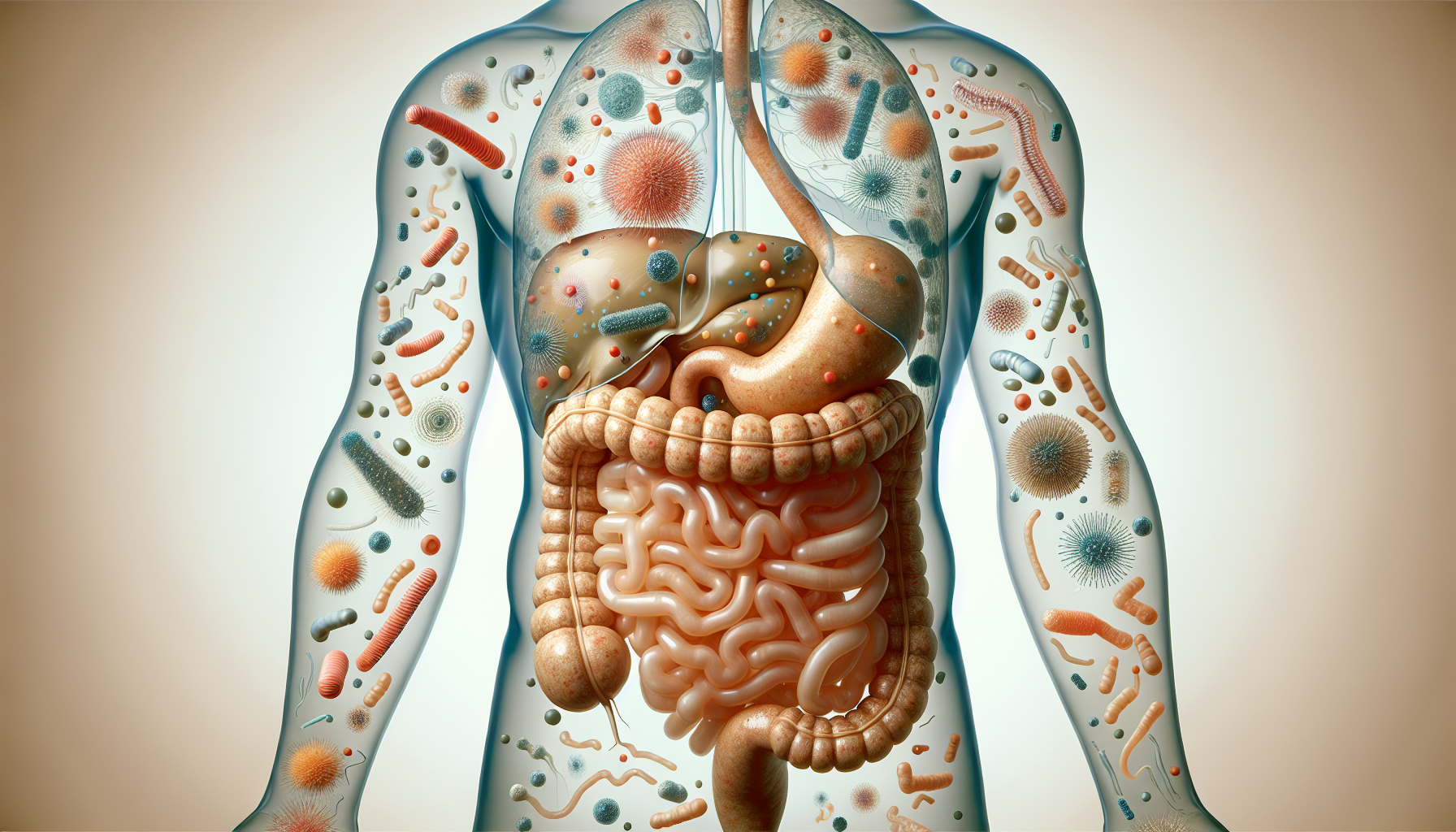The human gut is a complex ecosystem, home to trillions of microorganisms that play a vital role in our overall health. This community of bacteria, viruses, fungi, and other microorganisms is referred to as the gut microbiota. Recent research has uncovered the profound impact that these microscopic inhabitants have on disease prevention, influencing everything from digestion to immune function and even mental health. This article delves into the multifaceted role of gut microbiota in maintaining health and preventing disease.
Understanding the Gut Microbiome
The gut microbiome is established at birth and evolves throughout life, influenced by factors such as diet, lifestyle, and environment. A balanced microbiome is critical for effective digestion and absorption of nutrients, and it has a protective function, competing with potential pathogens for space and resources. Moreover, the microbiota produces essential vitamins like vitamin K and some B vitamins, and it plays a pivotal role in digestive health.
A diverse gut microbiome is associated with good health, while dysbiosis, an imbalance in the microbial community, can contribute to various diseases. Research has linked dysbiosis to conditions such as inflammatory bowel disease (IBD), obesity, type 2 diabetes, and cardiovascular disease.
The Microbiota-Gut-Brain Axis
The communication network between the gut microbiota and the brain, known as the gut-brain axis, is perhaps one of the most fascinating areas of current research. This bidirectional link means that not only can your gut influence your mental state, but your emotions can also affect the composition of your gut microbiota. Studies have explored the impact of stress on colon health, demonstrating that chronic stress can alter the gut’s microbial balance, leading to gastrointestinal issues and potentially exacerbating mental health disorders such as anxiety and depression.
Diet’s Role in Shaping the Microbiome
What we eat significantly impacts our gut microbiota. Diets high in fiber, for example, promote a diverse and resilient microbiome, while the effect of antibiotics on intestinal flora can be detrimental, reducing microbial diversity and potentially leading to dysbiosis. The Mediterranean diet, rich in fruits, vegetables, and olive oil, has been associated with benefits for the gut microbiota and is linked to a lower risk of chronic diseases.
It’s crucial to recognize the impact of high sugar diets on gastrointestinal health, as excessive sugar intake can promote the growth of harmful bacteria and yeasts, leading to dysbiosis and inflammation.
The Microbiota and Disease Prevention
The gut microbiota has an essential role in modulating the immune system. A healthy microbiome can prevent the overgrowth of harmful bacteria and stimulate the production of natural antibiotics and anti-inflammatory compounds. This modulation is key in preventing autoimmune diseases, where the immune system attacks the body’s own cells.
Additionally, the microbiome’s influence on metabolism and weight control is significant. Certain gut bacteria can extract more calories from food, contributing to weight gain, while others may help prevent obesity. For instance, the presence of Akkermansia muciniphila has been associated with improved metabolic profiles and reduced body fat.
Moreover, the gut microbiota can also affect the risk of developing cancer. Some bacteria have been shown to produce substances that can damage DNA, leading to cancer, while others can have protective effects.
Strategies for Maintaining a Healthy Microbiome
To foster a healthy gut microbiota, consider the following strategies:
- Adopt a diverse, high-fiber diet: Diets rich in vegetables, fruits, legumes, and whole grains provide substrates for beneficial bacteria to thrive.
- Limit the use of antibiotics: Only use antibiotics when necessary, as they can disrupt the microbial balance in the gut.
- Incorporate fermented foods: Foods like yogurt, kefir, and sauerkraut contain probiotics that can help maintain a healthy microbiome.
- Stay hydrated: Proper hydration is crucial for digestive health and can help maintain a balanced gut environment.
- Exercise regularly: Physical activity can enhance the diversity and number of beneficial bacteria in the gut.
External Resources for Further Reading
- Explore the International Scientific Association for Probiotics and Prebiotics (ISAPP) for insights into the role of probiotics and prebiotics in gut health.
- The Human Microbiome Project provides a wealth of information on the human microbiome and its relationship to health and disease.
- Research on the gut-brain axis is available through the American Psychological Association, offering a psychological perspective on gut health.
- For an in-depth look at dietary fibers and their impact on gut microbiota, the British Nutrition Foundation provides comprehensive resources.
In conclusion, the gut microbiota plays a crucial role in disease prevention and overall health. By understanding and nurturing our microbial partners through diet, lifestyle, and mindful medication use, we can harness their potential for maintaining wellness and preventing disease. As research continues to unfold, the importance of our gut microbiota’s balance becomes ever clearer, emphasizing the need for an integrative approach to health that considers the intricate connections within our bodies.



